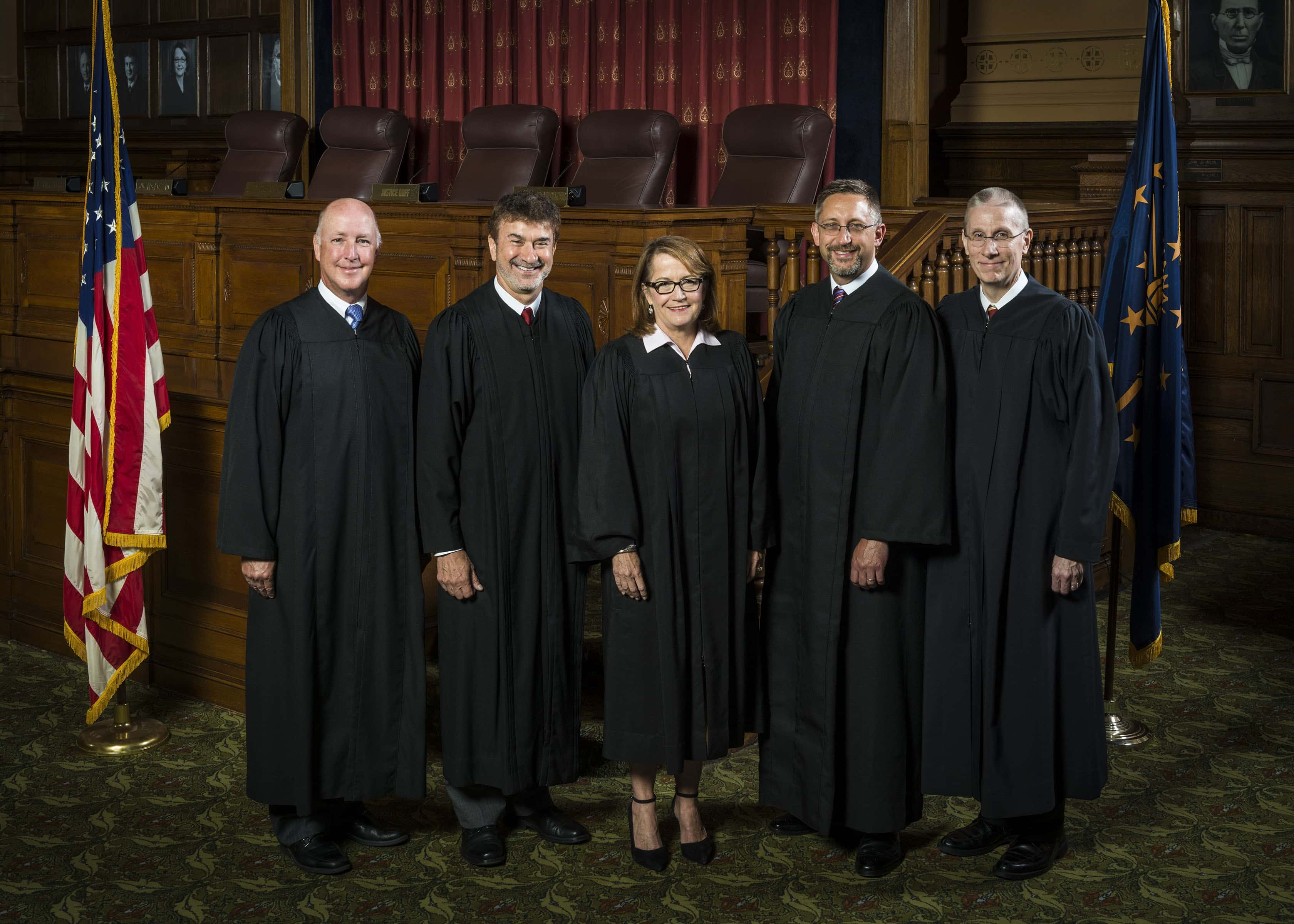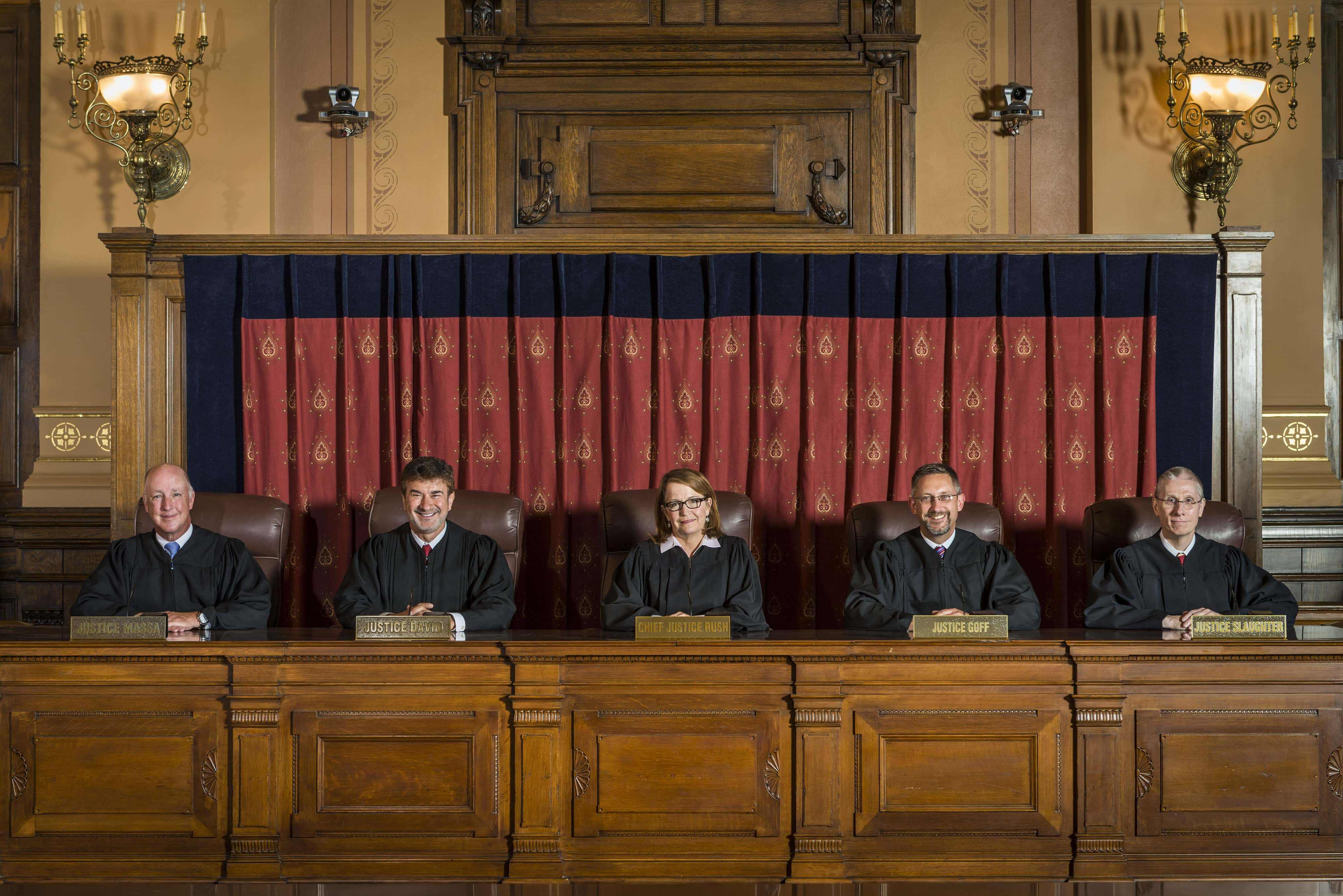
INDIANAPOLIS – Indiana’s Supreme Court justices are disagreeing more often.
Last term, two-thirds of the court’s decisions were unanimous. That’s a lot, but the year before, it was 84-percent.
The justices split on 14 cases this time, twice as many as the previous term. Justice Geoffrey Slaughter was alone in the minority in six of those 14, and joined in five other dissents. Justice Christopher Goff wrote his first dissent after voting with the majority in all the cases in his first year on the court.
Justices Steven David and Mark Massa each dissented from the outcome in three cases, while Chief Justice Loretta Rush authored two solo dissents.

Rush says fewer unanimous rulings may be a good thing. She says it shows the justices are all looking at the law through their own lens, and thinking seriously about the precedents the court’s rulings will set. While some states and the U-S Supreme Court have seen justices firing legal broadsides at each other in their dissents, Rush says Indiana’s disagreements have always remained civil.
All five justices are Republican appointees, but Rush says they all bring different backgrounds to the court, and says there are no predictable voting blocs. In the 14 cases which weren’t unanimous, Rush and Goff voted together 11 times, the most of any pair of justices, while Slaughters 11 dissents meant he voted with Rush just once in those cases. But with the unanimous rulings added, even Slaughter and Rush voted together 69-percent of the time.
At the U-S Supreme Court, just 39-percent of last term’s cases were unanimous, while 29-percent were decided 5-4.


